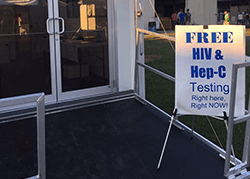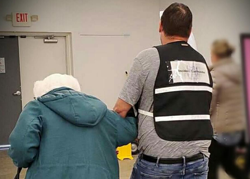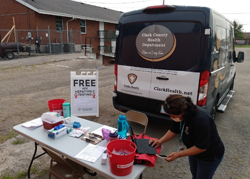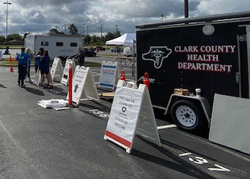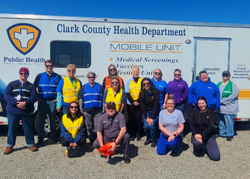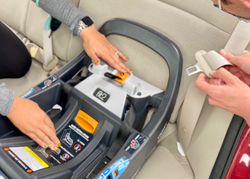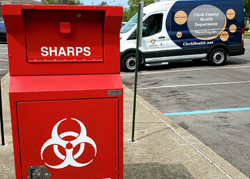Food Handler/Food Protection Manager Certification
Food Handler Certification Examination and Training Program Providers
During the 2020 legislative session, House Enrolled Act 1210 (HEA 1210) was passed, making changes to the law on which the Certification of Food Handler Requirements rule, 410 IAC 7-22, was based.
Indiana Code 16-42-5.2 was amended in the Indiana State Department of Health’s (ISDH) agency bill (HEA 1210) to be consistent with terminology used nationally by the food industry and to eliminate confusion over similarly named, differing levels of food handler training. The parts of the bill relative to “Certified Food Handlers” (CFH), now called “Certified Food Protection Managers” (CFPM), have been excerpted and is attached as Attachment A. Click here to view the full text of HEA 1210.
Click here for a list of training and testing facilities available from the Indiana State Department of Health. This list or any company on this list is not an endorsement of the Clark County Health Department.
Retail food Establishments
The Indiana Department of Health has released the newest food Code, 410, IAC 7-26. It is set to go into effect on April 16th, 2025. There will be a phased enforcement period and education through the end of the year. More information will be released on our social media pages and via email to the contacts that we have on file.
A Certified Food Protection Manager (Certificate valid for 5 years) is needed for Retail Food Establishments who do not fall under the following exemptions:
A Certified Food Protection Manager is not needed when the food establishment's food handling activities do not include the cooking of raw food of animal origin or are limited to one (1) or more of the following: (1) Heating or serving precooked foods. (2) Preparing or serving a continental breakfast such as rolls, coffee, juice, milk, and cold cereal. (3) Preparing or serving beverages or ice. (4) Preparing or serving packaged or unpackaged low hazard foods, including elephant ears, funnel cakes, cotton candy, confectioneries, baked goods, popcorn, chips and grinding coffee beans. (5) Providing prepackaged food in its original package.
Organizations which were exempt from having a Certified Food Handler continue to be exempt from having a Certified Food Protection Manager, although they may employ one or more Certified Food Protection Managers if they desire to do so.
Home Based Vendor
If you sell food to an end consumer in the state of Indiana, you are either established as a Retail Food Establishment or a Home-Based Vendor. Most individuals who sell goods at farmer’s markets or roadside stands are operating under home-based vendors laws. Indiana passed a 2022 law (HB 1149) which includes changes that will impact all persons operating as a home-based vendor. This article will help you understand who qualifies as a home-based vendor, which foods home-based vendors are allowed to sell and what has changed in the new law.
All home-based vendors are required to obtain a Food Handler Certificate from a certificate issuer that is accredited by the ANSI. Upon request, the home-based vendor must provide a copy of the certificate to the state department or end consumer. This certification is valid for three years. A home based vendor shall provide a copy of the food handler certificate required by subsection (a) to the local health department in the county where the home based vendor's residence is located.
Who is a home-based vendor?
Pursuant to code: IC 16-42-5.3, “A home based vendor shall prepare and sell only a food product that is:
- made, grown, or raised by an individual at the individual's primary residence, including any permanent structure that is on the same property as the residence;
- not a potentially hazardous food product;
- prepared using proper sanitary procedures;
- not resold; (e.g. you must sell to the end user not someone who intends to resell; if you did this you must be licensed as a wholesaler).
More information on Home Based Vendors




